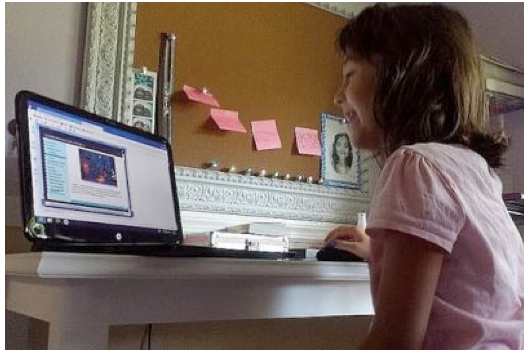CommentsEDUCATION POLITICS-At last week’s CNN Town Hall in South Carolina, public education got a moment on the Democratic primary campaign stage. But what did it really tell us?
Audience member John Loveday was introduced as the principal of a charter school. He asked Democratic presidential candidate Hillary Clinton whether she would support a longer school day or school year to keep up with India and China.
Given the limited attention K-12 schools have received in any of the presidential campaigns, education voters were glad for an opportunity to evaluate a candidate's position.
Public education advocates recognize this particular question as a talking point of Democrats for Education Reform, “Third Way” dems who seek to turn public education into a business. They're supported by disruptive innovators poised to receive massive amounts of public money to provide the services. It wasn’t surprising that this question would come from a charter administrator. You can think of it as you would if a fund manager wanting to privatize social security were to ask a candidate about collecting fees on retirement accounts.
But this guy was no banker. How much more authentic can you get than a school principal? Reminiscent of Joe the Plumber entering the public realm in 2008’s presidential race, the charter principal claimed that his school was doing something innovative--and he hoped to hear Secretary Clinton declare her support for it--and thereby her support for his enterprise.
“My charter school is unique because we are the only school in the state that offers more instructional days than required by law. We offer 230 instructional days versus the traditional 180. If you look at countries like India and China, they offer--they require--their high school students to attend 220 days on average. That’s 40 more than our high school students. Do you think that puts our students at a disadvantage and, if so, would you work with states to modernize that policy?”
Hillary Clinton answered by explaining that some kids languish when school lets out for the summer. She concluded, “I have said I want to be a good partner for educators and teachers. But I want to help them do what they know they are supposed to do. We need better and fewer tests, not more tests. We need more support in the classroom because a lot of kids come with needs.”
Activists have jumped on her remarks as a policy statement for longer school days and a shorter summer. But just like Joe the Plumber shared the spotlight with the candidate years ago, this charter principal deserves some attention, too. Is he helping the kids Clinton describes? Should a presidential candidate support innovations like his?
Well, Loveday is the principal of an online, virtual charter school which tells students, "as long as you meet the state attendance requirements in a year's time, your personal school schedule is up to you." Students “can enroll any time of the year. Our self-paced curriculum allows students to graduate early or to take the extra time they need to master a subject.”
So it’s hard to take Loveday at his word when he seems to brag about his school offering more instructional time to give American students an edge. Is his school really just taking advantage of more days of funding? We don’t know for sure without a deeper analysis.
But the question--and the questioner--underscore something important. With “innovators” like this charter administrator at the mic, we are reminded of the smoke and mirrors that have blurred the public's view of some of the changes in education policy in recent years. In this presidential campaign, we need candidates to show they understand what is really being asked about public education before we can judge their grasp of the issue. For example, how does the goal of reaching higher standards end up meaning that 50 neighborhood schools in Chicago close? How does the promise of innovation end up meaning that public assets are sold off to private enterprise? How does the idea of school choice end up re-segregating our schools along racial lines?
To judge who is most capable of standing up for our schools, we need to know if candidates even understand how much is at stake. For that to happen, this election must include a more vigorous education debate.
(Karen Wolfe is a public school parent, the Executive Director of PS Connect and an occasional contributor to CityWatch.) Edited for CityWatch by Linda Abrams.















